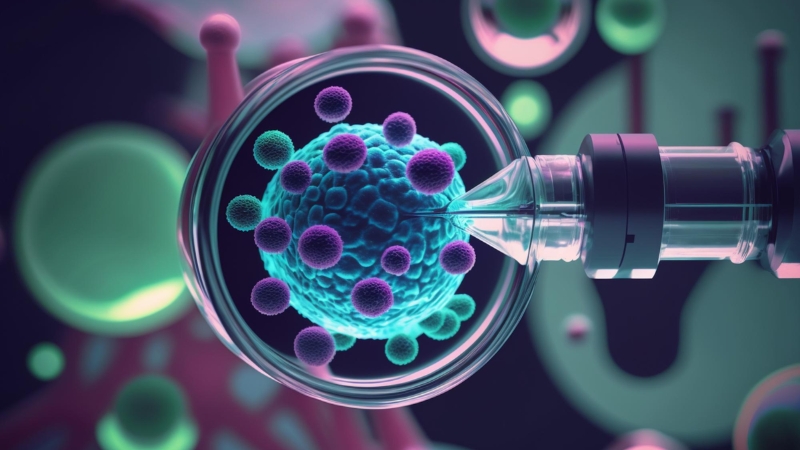Chemotherapy and Immunotherapy"Dual Approaches to Combatting Cancer."

In our hospital, we provide a wide range of services that include immunotherapy as well as chemotherapy. Our approach takes into account the complex and varied aspects of cancer therapy, combining several therapies to deliver efficient and individualized care. This section will cover the importance of immunotherapy and chemotherapy, the diseases that may benefit from these treatments, possible drawbacks, and the unique attributes that set us apart as a leading provider of quality in the field of cancer care.
What is Chemotherapy and Immunotherapy?
Essential elements of cancer treatment include immunotherapy and chemotherapy, which use different strategies to fight cancer cells. Chemotherapy targets and kills rapidly dividing cancer cells throughout the body by using potent medications. It is frequently used as a systemic therapy for metastatic malignancies. Conversely, immunotherapy uses the body's immune system to identify and combat cancerous cells. With a more focused and accurate approach, this novel therapeutic modality boosts the immune system's built-in defenses against cancer.
Why Do You Need Chemotherapy and Immunotherapy?
- Systemic Eradication: Cancers that have spread to other places of the body and metastasized can be effectively treated with chemotherapy. It travels to cancer cells beyond the main tumor location through the bloodstream.
- Immune System Activation: In order to recognize and eradicate cancer cells, the body's immune system must be stimulated by immunotherapy. It strengthens the immune system, which is especially helpful for tumors that could be difficult to diagnose.
- Combination Therapies: To optimize treatment outcomes, these modalities are frequently utilized in conjunction with radiation, surgery, or each other. Prior to surgery, chemotherapy can reduce tumor size, and immunotherapy can assist the immune system in identifying cancer cells that are still present.
- Treatment of Different Cancer Types: Chemotherapy and immunotherapy are used to treat many kinds of cancer, such as melanoma, lung, breast, and hematological cancers. Because of their adaptability, they are essential to all-encompassing cancer care.
Possible Risks:
Although highly effective in treating cancer, chemotherapy and immunotherapy carry certain hazards. Chemotherapy side effects, like as fatigue and nausea, might interfere with day-to-day activities. Even though immunotherapy is usually well tolerated, side effects related to the immune system might occur and need to be closely watched. Since both treatments have the potential to harm healthy cells, it is crucial to manage patients proactively and work closely with healthcare professionals to maintain their wellbeing throughout their cancer treatment process.
Treatment Steps in Chemotherapy and Immunotherapy:
- Pre-Treatment Evaluation: In-depth evaluations are carried out to ascertain the kind and stage of the disease, which informs the creation of an individualized treatment strategy.
- Administration of Chemotherapy: Chemotherapy medications can be taken orally or intravenously, which enables them to target cancer cells throughout the body.
- Immunotherapy Infusion: Immunotherapy stimulates the immune system to identify and combat cancer cells, and is commonly administered as intravenous infusions.
- Monitoring and Adjustments: Frequent evaluation of possible adverse effects and treatment responses, with modifications made as needed to maximize results.
A thorough understanding, individualized treatment programs, and continuous support are essential components of immunotherapy as well as chemotherapy. Throughout your cancer treatment journey, our compassionate and state-of-the-art healthcare team will be there for you.
Top Asked Questions and Answers:
FAQ (Frequently Asked Questions):
+91-9144411108
Emergency Cases

